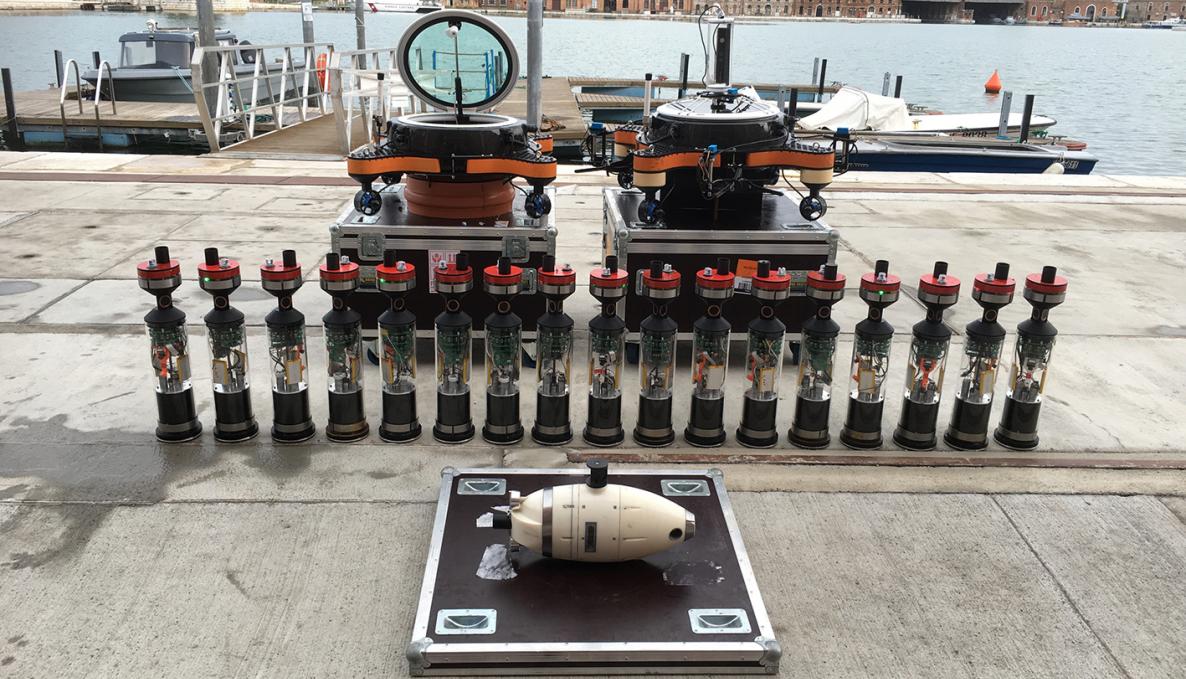CLIMATE CHANGE: BIOENGINEERING AND BIOROBOTICS TO PRESERVE FRAGILE ECOSYSTEMS, CURE THE ENVIRONMENT AND PROPOSE A NEW MODEL OF SUSTAINABLE DEVELOPMENT

What is the role of robotics in the fight against climate change? And how do recent advances in bioengineering and biorobotics help to safeguard the most fragile ecosystems and propose a new development model in line with the principles of sustainability? The workshop "Integrating Robotics and Ecology to Preserve Ecosystems", organized by Cesare Stefanini and Donato Romano Cesare Stefanini and Donato Romano, professor and assistant professor of The BioRobotics Institute, as part of All4Climate promoted by the Ministry of Ecological Transition, has defined a possible combination between robotics and the fight against climate change.
The Workshop aims at providing a glimpse of the most recent advancements in bionics, bio-engineering, and ecological technologies intersecting climate change, based on robot interactions with the environment, or on the use of organisms as living devices. The workshop has presented to a wide audience the potential of these scientific and technological paradigms. The goal is to promote not only future collaborations but also to raise awareness and inspire new generations of students and citizens.
THE SPEAKERS
Some direct consequences of climate change include rising of maximum and minimum temperatures, increased sea levels, shrinking glaciers, increased probability of extreme weather events. These phenomena produce hunger and water crises, the spread of pests and pathogens, ocean acidification, etc., significantly impacting on humans and the environment. This theme is of great interest in all fields from applied sciences to social sciences. The global issue of climate change must be addressed through cooperation and multidisciplinary action at a global level.
The speakers are:
- Prof. Marcello Calisti (Lincoln Institute for Agri-Food Technology, The University of Lincoln, UK) - Robots for the benthic zone: a bio-inspired approach to field robotics.
- Prof. Giampaolo Rossetti (Department of Chemistry, Life Sciences and Environmental Sustainability, University of Parma, Parma, Italy) - Observed and expected impacts of climate change on freshwater invertebrates: results from case studies.
- Dr. Xiaojuan Mo (School of Mechanical Engineering, Northwestern Polytechnical University, China) - Bioinspired locomotion strategies for new generations of robots exploring environments after climate change-related natural disasters.
- Prof. Thomas Schmickl (Artificial Life Lab of the University of Graz, Austria) - Natural and robotic swarms: Applying technology to modulate collective decision making in natural and bio-hybrid systems.
- Dr. Ronald Thenius (Artificial Life Lab of the University of Graz, Austria) - Biohybrid robotics for continuous monitoring environmental changes.
- Dr. André Wilke (Division of Environment & Public Health, Department of Public Health Sciences, University of Miami Miller School of Medicine, USA) - Global warming and urbanization as a driver for the proliferation of vector mosquitoes.



